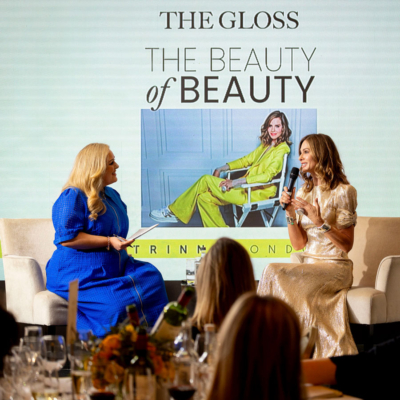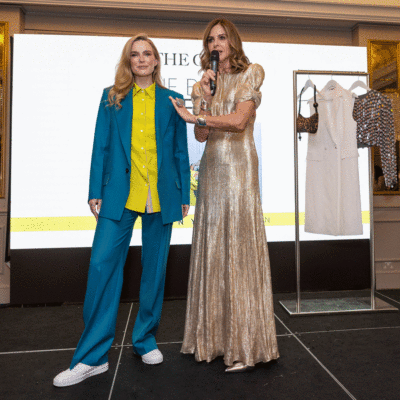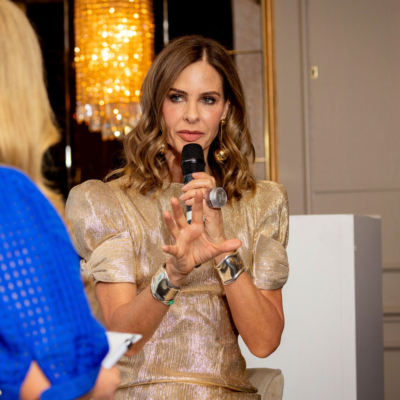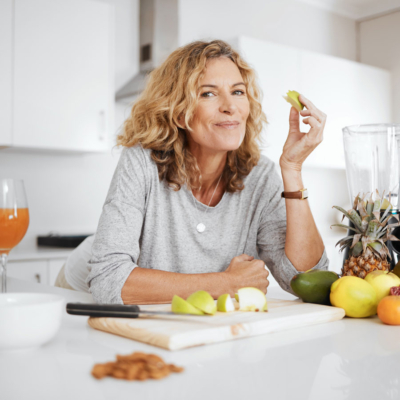Dr Fiona Barry was part of the research and development team that developed a unique formulation to support women during their menopausal journey …
Menopause Awareness Month may be over, but now that the conversation about menopause has begun there’s every reason to continue it.
For too long, menopause and its predecessor, perimenopause, were not spoken of at all, resulting in widespread ignorance of both. Given that 50% of the population will experience this transition at some point in their lives, the past reluctance to talk about menopause is hard to fathom, although perhaps less so when viewed in the broader context of women’s health in Ireland, which has not always been top of the list of priorities for the men running the country.
Thankfully things are changing, and Ireland is no longer stuck in the dark ages when it comes to menopause awareness, but even now, many GPs say they are regularly asked: ‘What is menopause and how do I know I am in it?’
For most women, menopause is a gradual process encompassing both physical and physiological changes to the body triggered by the hormone changes that occur as she moves beyond her fertile years.
Menopause is defined as the point at which periods cease, and women are in menopause twelve months after their last period. Preceding the cessation of periods and menopause itself, is the perimenopause, which may last for several years. During this time the majority of women experience symptoms linked to the reduction in oestrogen levels that coincides with the decline in fertility.
The average age of perimenopause is 43, and of menopause, 51, and for most women the perimenopause and menopause taken together last for just over seven years, although for some it’s longer. Given that this is a significant length of time, it’s no wonder that growing numbers of women are no longer prepared to put up with feeling sub-par and want to find out more about the options open to them in terms of perimenopause and menopause supports.
In the past, menopause was thought of as something affecting women considered past their prime but given increased life expectancy and the fact that many women are having their children later in life, women in perimenopause and menopause are as likely to be running a 10k or dropping young children off to GAA training as they are to be baking apple pies or knitting by the fire.
The average age of perimenopause is 43, and of menopause, 51, and for most women the perimenopause and menopause taken together last for just over seven years, although for some it’s longer.
Dr Fiona Barry holds a PhD in pharmacology and is a key member of the Meno Active formulation team. She has vast experience of women’s wellbeing through her work as a certified Chinese Medicine Practitioner and with two busy wellbeing practices in her native city, Cork.
“In early perimenopause,” says Dr Barry, “the tell-tale signs may include sleep disturbance, weight gain and water retention, while in later perimenopause, when hormone levels are fluctuating, there may be loss of libido and vaginal dryness. Interestingly, in early perimenopause women may find they have increased libido, and more frequent periods, which is nature’s way of telling them to get on with it and have one last baby before it’s too late!”

Dr Fiona Barry
The range of symptoms women experience during perimenopause and menopause is vast, and each woman’s experience is unique to her. So, while one woman may report physical or physiological symptoms, another may be experiencing anxiety for the first time in her life, and another might be struggling with the impact of hormone imbalance on her sex life.
Given the huge and diverse range of possible symptoms, it’s no wonder that women are often unsure whether they are in perimenopause or not, as it can start without a change in the menstrual cycle, with the first symptoms often being sleep disturbance, anxiety, aches and pains, or mood swings.
We certainly have some catching up to do when it comes to menopause awareness!

The team at Revive Active were motivated to develop its new Meno Active menopause supplement by the realisation that women going through perimenopause and menopause were so badly served when they went in search of nutritional supplements to help support them through this time.
The Research and Development Team spent two years developing a super supplement, formulated to support the systems in a woman’s body during their menopausal journey. Dr Barry’s expertise in the use of botanicals was valuable in the development of Meno Active, which contains 30 active ingredients including live friendly bacteria, vitamins and minerals, digestive enzymes, botanicals, and Omega 3 DHA which support hormonal activity, brain function, the nervous system and contributes to a reduction of tiredness and fatigue
“To be optimally effective,” she says, “a food supplement needs the correct ingredients at the correct inclusion levels. I believe Meno Active is the most comprehensive menopause supplement on the market for what can be a challenging time in a woman’s life.”
For more information see ie.reviveactive.com.
LOVETHEGLOSS.IE?
Sign up to our MAILING LIST now for a roundup of the latest fashion, beauty, interiors and entertaining news from THE GLOSS MAGAZINE’s daily dispatches.









